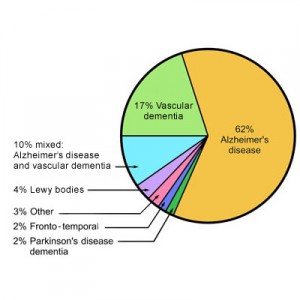
By GARY JOSEPH LeBLANC: Common Sense Caregiving
After spending much time conferring with the general public I have come to the conclusion that a large percentage of people have a hard time understanding the difference between Alzheimer’s and dementia.
Recently, I was thrilled to read an article by Dr. Robert Stern, Director of the Boston University Alzheimer’s Disease Center. Stern simply explained that, “Dementia is a symptom, and Alzheimer’s is the cause of the symptom. A good analogy to the term dementia is “fever.” Fever refers to an elevated temperature, indicating that the person is sick, but it does not touch on any information on what is causing the sickness.” So, basically what he’s saying is that dementia is not the disease; it is one of the symptoms of the disease.
There are many causes of dementia and some are reversible. But unfortunately, 70-80 percent of all cases occur from Alzheimer’s which is not rescindable. In fact it is fatal.
The word dementia has come to replace many old terms such as senility, having senior moments or experiencing a second childhood. It is important to know that dementia is not necessarily a normal part of aging. If it does present itself, the person showing signs should be checked out thoroughly.
The significance of a correct diagnosis could make all the difference in putting the patient on the right track and possibly curing the problem.
Now that we have differentiated that dementia is a symptom, what are the characteristics to look for? Well, the most prominent one is the loss of memory, which leads into the decline of other cognitive skills such as language, attention span, decision making and motor skills functions.
Fighting for the cause against Alzheimer’s includes educating the public to be aware of all the disabilities involved with the disease. This also means educating physicians.
Over the past several years many doctors have seemed to become at ease with the inclination of diagnosing the patient with Alzheimer’s a little too quickly when, in fact, it may be a form of dementia that could be reversible.
So remember this; when dealing with Alzheimer’s or dementia, starting with a proper diagnosis is essential so that the patient can immediately be prescribed the correct treatment or therapy and the family can plan ahead from this point and get started on the right foot.
Articles in blog section of www.ALZinfo.org are written by professional journalists and individuals who strive to present reliable, up-to-date health and care information. However, personal decisions regarding health, finance, exercise, and other matters should be made only after consultation with the reader’s physician or professional adviser. Opinions expressed herein are not necessarily those of the Fisher Center for Alzheimer’s Research Foundation.









